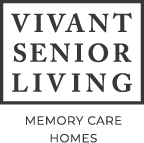911 Calls
Photo by Ernesto Eslava
You may be surprised to hear we, as an assisted living facility, sometimes call 911. It's important to remember the purpose of assisted living facilities. We help the elderly with their everyday needs: Getting out of bed, getting dressed, using the bathroom, taking medicine, eating, moving around, taking showers, socializing, staying hydrated, and staying engaged. The elderly come to stay with us because they cannot do everything they used to by themselves.
Even when the elderly have someone assisting them twenty-four hours per day, year-round, they still occasionally fall, get urinary tract infections, and experience medicine side effects, to name a few significant risks. No one wants to admit these things, but they happen. These risks reduce when living at a top assisted living facility, but they still occur. Thankfully, there is always an available caregiver to help them immediately or reach out to their primary care provider for a consult when they happen. If neither option is appropriate for the circumstance, assisted living facilities do not hesitate to call 911.
Assisted living facilities typically are not licensed to provide skilled nursing care. Furthermore, the staff that is on-site overnight generally are not nurses. In the middle of the night, or even during the day, if a resident falls, has a significant change of behavior, or becomes despondent, we never hesitate to call 911 if we feel it is appropriate for the circumstance.
There is criticism that assisted living facilities overuse the 911 response system. Sometimes staff call 911 for issues that turn out not to need an emergency response. In our experience and practice, we do several things to reduce the number of 911 calls we make. For instance, recently, we signed an agreement with a doctor's group practice that provides backup call coverage if a resident's primary care provider is unavailable. In practice, the way this works is the caregivers or administrator contact a resident's primary provider first. If they cannot reach the primary provider, they would reach out to the doctor's on-call line. Their team would advise on whether to send residents to the hospital, order x-rays and labs.
As a top assisted living facility in the Central Orlando area, we feel it's our responsibility to lead a conversation with our fellow assisted living facility operators and the emergency service responders that answer the 911 calls. We want to help other facilities reduce their use of the system and reduce the likeliness of emergencies. Over the next year, we will be engaging with emergency service responders and assisted living operators in the Central Orlando area and leading a conversation around assisted living facilities using the 911 call system. We feel it's vital that the emergency call system serves the elderly, typically the population that most need the service. Still, we also want to make sure assisted living facility operators make every effort not to overuse the system.
I should also note we never want to send our residents to the hospital with the emergency responders. Hospitals are fantastic for stabilizing emergency or urgent conditions. Still, when the elderly leave the hospital, it takes them a while to return to what we like to call their "baseline." If you have ever stayed with someone overnight at the hospital, you know it's hard to sleep and get good food. The hospitals are not places for sleep or long-term recovery. You want to go home to get these things. For our elderly residents, it can take a long time to get them back to baseline, and sometimes they never do. Sometimes, after experiencing a bad event, they never come back to our facility.
I hope I don't come off too coarse here, but losing a resident to a rehabilitation or skilled nursing facility is never something we want to see. If you are a smaller facility, one resident could make the difference between business success or failure. If we cannot pay the bills, then our businesses have to start cutting costs. Cutting costs can impact staffing by deciding to have less staff on-site or paying new hires less. Either option will most likely affect the care your residents are receiving. All of this can eventually lead to more 911 calls. We don't think the clear answer is to hire more staff, but instead to make sure the team you have is providing excellent care and making the best decisions on when to use the 911 call system.
If you are a local emergency response system or assisted living facility operator, and you feel this is a conversation worth having, please reach out to me at andrew@vivantsl.com. You may republish this post with an attribution link: https://vivantseniorliving.com/blog/911-calls
Vivant Senior Living provides exceptional memory care services in vibrant residential homes for seniors with dementia, including Alzheimer's, Lewy body dementia, and Parkinson's disease dementia, in Central Orlando.

